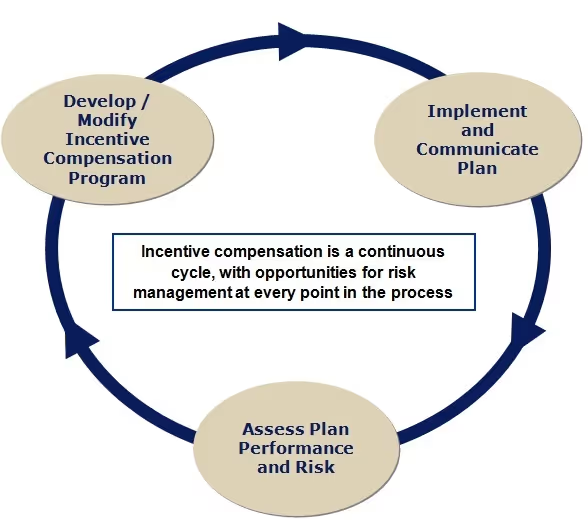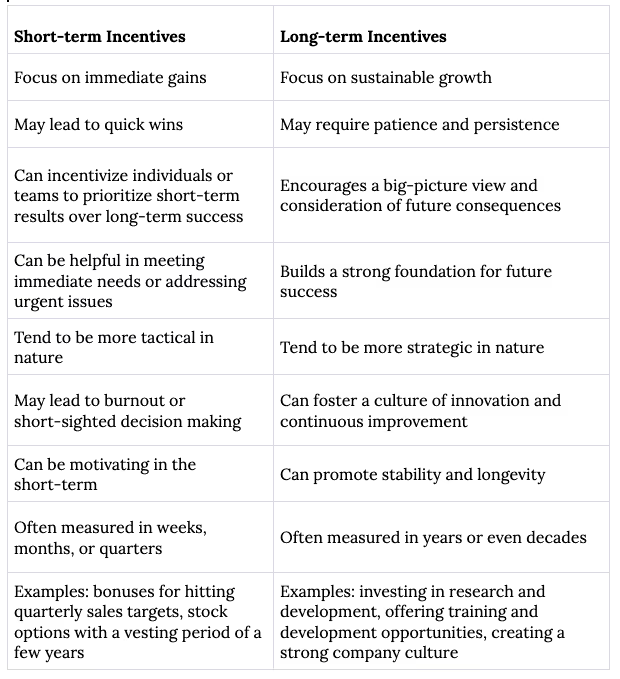Complete Guide to Incentive Compensation Management for Sales Team

Incentive compensation is a performance-based rewards system designed to motivate salespeople and improve their performance. This type of compensation is directly tied to the achievement of specific sales targets, goals, or other performance metrics, and is typically offered in addition to a base salary.
Incentive compensation can take various forms, such as:
- Commissions: Commissions are a percentage of the revenue generated from a sale or a fixed amount per sale. Salespeople receive a commission based on the volume or value of the products or services they sell, making their earnings directly proportional to their performance.
- Bonuses: Bonuses are financial rewards given to salespeople for achieving certain predefined targets or milestones, such as closing a large deal, exceeding sales quotas, or retaining a high-value client. Bonuses can be paid on an individual or team basis and may be tied to specific events or performance periods.
- Performance-based incentives: These incentives are tied to the achievement of specific key performance indicators (KPIs), such as the number of new clients acquired, customer satisfaction ratings, or the percentage of sales closed from leads. Performance-based incentives encourage salespeople to focus on improving specific aspects of their performance, which can help drive overall sales success.
- Non-monetary rewards: In addition to financial incentives, some organizations offer non-monetary rewards to recognize and motivate salespeople. These may include recognition programs, travel incentives, gift cards, or exclusive access to events or experiences.
An effective incentive compensation plan for sales teams should be well-designed, transparent, and aligned with both individual and organizational goals. By offering a competitive and attractive rewards system, companies can motivate their sales teams to perform at their best and achieve desired sales outcomes.
Importance Of Incentive Compensation For Sales Teams
Incentive compensation plays a crucial role in motivating and retaining sales teams. It helps organizations achieve their sales goals, drive performance, and foster a competitive yet collaborative work environment. Here are some key reasons why incentive compensation is important for sales teams:

- Motivation: Incentive compensation serves as a powerful motivator for sales representatives to perform at their best. It creates a direct link between individual performance and financial rewards, pushing them to strive harder and achieve their sales targets.
- Aligning objectives: By tying incentives to specific goals, organizations can ensure that their sales teams are focused on achieving strategic objectives. This alignment helps sales representatives prioritize their efforts and work towards common goals.
- Retaining top talent: Sales teams often consist of high-performing, ambitious individuals who seek recognition and reward for their efforts. Incentive compensation serves as a way to retain these top performers by acknowledging their contributions and providing them with financial rewards that reflect their impact on the business.
- Encouraging healthy competition: Incentive compensation can promote friendly competition among team members, driving them to outperform each other. This competitive spirit can boost overall team performance and help the organization achieve its sales targets more effectively.
- Attracting new talent: A well-designed incentive compensation plan can make a company more attractive to potential employees. High-performing sales professionals often seek out organizations that offer competitive compensation packages, and a strong incentive plan can set a company apart from its competitors.
- Adapting to market conditions: Incentive compensation plans can be designed to respond to changing market conditions, allowing organizations to pivot their sales strategies as needed. By adjusting incentives based on factors such as new products, emerging markets, or economic shifts, companies can maintain a high level of sales performance despite external challenges.
- Reinforcing company values: Incentive compensation plans can also be used to emphasize desired behaviors and values among sales teams, such as collaboration, customer service, or ethical conduct. By rewarding sales representatives who embody these values, organizations can create a sales culture that aligns with their broader mission and vision.
How To Align Incentives With Organizational Goals
Aligning incentives with organizational goals is essential for creating a motivated and focused sales team that drives the organization's success. Here are some steps to help align incentives with organizational goals:

- Identify organizational goals: Begin by clearly defining the organization's short-term and long-term goals, such as revenue targets, market share, customer acquisition, customer retention, or product-specific sales objectives. These goals should be specific, measurable, achievable, relevant, and time-bound (SMART).
- Determine key performance indicators (KPIs): Identify the KPIs that directly impact the achievement of organizational goals. These may include the number of new clients acquired, average deal size, sales conversion rates, or customer satisfaction ratings.
- Design the incentive compensation plan: Develop an incentive plan that rewards sales representatives based on their performance against the identified KPIs. This may include commissions, bonuses, performance-based incentives, or non-monetary rewards. Ensure that the incentive structure is clear, transparent, and easily understandable.
- Balance short-term and long-term incentives: Create a mix of short-term and long-term incentives to encourage both immediate results and sustained performance. Short-term incentives may focus on achieving quarterly or annual sales targets, while long-term incentives may be tied to multi-year goals or strategic initiatives.
- Customize incentives for different roles: Recognize the unique contributions of different sales roles by tailoring incentives accordingly. For example, account executives may have incentives based on new client acquisition, while account managers may be rewarded for client retention and upselling.
- Communicate the plan: Clearly communicate the incentive plan to the sales team, explaining how their performance will be measured and rewarded. Ensure that they understand the connection between their efforts, the achievement of KPIs, and the organization's overall goals.
- Monitor and adjust: Regularly review the effectiveness of the incentive plan, analyzing whether it is driving the desired behaviors and contributing to the achievement of organizational goals. Gather feedback from the sales team and make adjustments as necessary to keep the plan aligned with evolving goals and market conditions.
Balancing short-term and long-term incentives
Balancing short-term and long-term incentives is crucial for creating a comprehensive and effective incentive compensation plan.

Overall, both short-term and long-term incentives can be important for motivating individuals and teams, but striking the right balance between the two is key.
Establishing Fair And Transparent Performance Metrics
Incentive compensation plans are often used to motivate and reward employees for their performance. When establishing a fair and transparent incentive compensation plan, it is important to consider the following steps:

- Establish clear and measurable performance metrics: Incentive compensation plans should be based on clear and measurable performance metrics that are aligned with the goals and objectives of the organization.
- Set realistic and achievable goals: Goals should be challenging, but also realistic and achievable. Employees should have a clear understanding of what is expected of them and what they need to do to earn their incentive compensation.
- Use multiple performance metrics: Incentive compensation plans should use multiple performance metrics to ensure that employees are not overly focused on a single metric or area of performance. This can help promote a more balanced approach to performance and encourage employees to work on multiple areas of their job responsibilities.
- Provide regular feedback: Regular feedback is important for helping employees understand how they are performing and where they need to improve. This feedback should be timely and specific, so that employees can take action to improve their performance and earn their incentive compensation.
- Ensure fairness and transparency: Incentive compensation plans should be fair and transparent, so that employees understand how their performance is being evaluated and how their compensation is being calculated. Compensation should be tied to performance metrics and be consistent across all employees in similar roles.
- Continuously evaluate and adjust the plan: Incentive compensation plans should be regularly evaluated to ensure that they are effective and fair. Adjustments may need to be made to the performance metrics, goals, or compensation structure to ensure that the plan continues to align with the goals and objectives of the organization.
Leveraging Technology For Efficient Administration with Compport
Technology backed compensation management tools like Compport can be used to streamline and improve the administration of incentive compensation management (ICM). This can include automating performance metrics tracking, implementing a centralized platform for managing all aspects of ICM, providing self-service capabilities and mobile access, and ensuring data security. By leveraging technology, organizations can improve the accuracy and consistency of their incentive compensation plans, while reducing administrative burden and improving employee motivation and engagement.
Conclusion
Incentive Compensation Management (ICM) plays a critical role in driving sales success by motivating and rewarding sales teams for their performance. By establishing fair and transparent performance metrics, balancing short-term and long-term incentives, ensuring legal compliance and ethical considerations, leveraging technology for efficient ICM administration, and regularly monitoring and evaluating the ICM plan, organizations can ensure that their sales teams are motivated, engaged, and focused on achieving their goals. Sales teams that are properly incentivized are more likely to meet or exceed their targets, contribute to the growth and profitability of the organization, and build strong customer relationships. Therefore, ICM is essential for driving sales success and ensuring the overall success of the organization.
Find out how Compport can help you manage all your incentive calculation process, book a demo today!
%2520(6)%2520(2).avif)
Frequently Asked Questions
1. What is incentive compensation management (ICM)?
Incentive Compensation Management is a strategic approach used by businesses to motivate and reward employees, particularly those in the sales department. This involves designing, implementing, and optimizing a system of performance-based incentives to drive productivity and encourage desired behaviors. The system can include bonuses, commissions, profit sharing, or other types of rewards that are linked to achieving specific goals or targets.
2. Why is ICM important for a sales team?
ICM plays a pivotal role in motivating and retaining salespeople. It aligns the individual goals of the sales team with the overall objectives of the company, thereby driving them to perform better. A well-structured ICM plan can help increase sales productivity, improve employee morale, reduce turnover, and, in turn, boost overall business profitability.
3. What are the key elements of an effective ICM plan for a sales team?
An effective ICM plan usually includes the following key elements:
- Clear and measurable objectives: These should align with the company's business strategy and be specific, achievable, relevant, and time-bound (SMART).
- Transparent and understandable: The ICM plan should be clear to all involved parties. Every sales team member should understand how their performance will be measured and rewarded.
- Flexibility: The plan should be flexible enough to adapt to changing market conditions or business goals.
- Regular reviews and adjustments: There should be consistent evaluations of the plan to ensure its effectiveness and make necessary adjustments.
- Recognition and rewards: Beyond monetary incentives, recognition for a job well done can be a powerful motivator.
4. What are some common challenges in implementing an ICM plan?
Some common challenges include designing a plan that truly motivates employees, balancing between rewarding top performers and maintaining overall team morale, ensuring the ICM plan aligns with the company's strategic goals, and maintaining transparency in performance measurement and reward distribution. Additionally, administrative complexities, such as accurately tracking performance and managing incentive payouts, can be a significant challenge without the right tools and processes in place.
5. How can technology help in managing ICM?
Technology plays a crucial role in modern ICM. Specialized software solutions can automate many of the administrative tasks associated with ICM, such as tracking sales performance, calculating incentives, and managing payouts. These tools also provide valuable data and analytics, allowing companies to monitor the effectiveness of their ICM plans and make data-driven adjustments. Furthermore, technology can enhance transparency, giving sales teams real-time insight into their performance against goals and potential earnings.


%20(49).png)
%20(48).png)
%20(47).avif)
